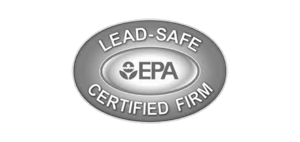One morning you step into the shower and after doing your normal routine, notice that sewage is starting to back up from the drain. Or you walk out into the backyard and suddenly realize there is a large sopping mess in the grass that wasn’t there the night before. When a sewage line breaks or backs up, it’s not a pretty sight (and it usually doesn’t smell too great, either), but there are ways to deal with it as well as ways for you to prevent it happening in the first place.
As homeowner’s insurance often does not cover normal wear and tear on sewage lines, it’s helpful to do whatever you can to keep up the health of your pipes. Simple things such as disposing of cooking grease properly can keep lines running smoothly. For example, you never want to pour hot grease down the drain as it can solidify once it cools and clog the pipe. Instead, pour it into a can or cup and, once it has cooled, throw it away.
Another way to prevent sewage backups is to make sure you’re not clogging up the line with excess paper products. Don’t throw anything into the toilet that doesn’t belong there, and don’t go overboard with what you do use. If paper products don’t deteriorate fast enough, they can easily back up and cause a clog, both in your own pipe and the city line.
Additionally, you can possibly replace your line with a new plastic pipe to prevent tree roots from wreaking havoc on your system. You may still have to cut tree roots if they find a way in, but hopefully this will stop them in their tracks. In the same vein, don’t plant trees or bushes too close to sewer lines or the roots could dig in and cause a disgusting nightmare for you.
Once sewage backs up or a pipe breaks, you may wonder if you’ll ever feel clean again. It’s not going to be pleasant, but it can be dealt with. The first step is to figure out whether you’ve got a full on broken pipe or a just clog, and that usually starts with knowing where your sewer line is located.
Pop quiz: do you know where your sewer line is? It’s not always as easy as being able to locate the fuse box if the lights go out. If it’s in a basement or crawl space, you should be able to find it on your own, but if you’ve got a house with a slab foundation, you may be left scratching your head.
If you can’t figure it out, you can also assess the situation with some detective work. Broken pipes often mean soggy yards or drains that can’t be cleared with plungers or snakes. Professional companies are able to locate and check out your sewer lines with closed circuit cameras that can travel the pipes to visually inspect and determined just how much damage there is.
Calling in the professionals is also a good idea because you, the average homeowner, can actually do more damage if you continuously try to unclog a sewer line with a plumber’s snake or overuse drain cleaner when the issue is, in face, a broken pipe.
Additionally, much like with flood damage, sewer line breaks and severe backups are often best left to the professionals because they have the equipment and experience to deal with these kinds of situations. Sewage water is also known as black water, and it’s hazardous to your health. Bacteria, contaminates and other nasties lurk just beneath the surface and you’ve got to be extremely careful while cleaning it up. This is not the kind of water you want touching your exposed skin, as it could lead to infections, allergies and other health problems. Not to mention, it’s all rather disgusting when you stop and really think about it.
Aside from the health concerns, much like with any flood damage, you’re could be dealing with damaged furniture and carpeting, weakened structures, or mold. Distinctive Restoration 247 can help you figure out if you’ve got a little problem or a big problem, and help get you back on your feet, and out of dirty water.



















